Best Herbs to Calm Nervous System and Strengthening
Top 9 Herbs to Calm Nervous System
Here are the best herbs to calm nervous system in natural way. The human nervous system is an exquisitely complex information highway that controls all of our biological processes, movements, and thoughts. Because of its vast reach in the body, I feel it is important to focus in on one primary area.
How the body responds to stress?
So, let’s start by quickly familiarizing ourselves with how the nervous system is organized. The central nervous system (CNS) is made up of the brain and spinal cord.
Well, the brain is responsible for processing com- plex information, and the spinal cord serves as a relay for bringing messages to and from the brain.
The peripheral nervous system is comprised of the somatic nervous system and the autonomic nervous system (ANS). The somatic nervous system is responsible for transmitting all the messages coming from our skeletal muscles and sensory organs.
The ANS is in charge of all the “automatic” functions in our body, things we don’t consciously control like the secretion of stomach acid or the beating of our heart.
Resiliency The Role for Herbal Medicine
So, nature has blessed us with many herbs that have a soothing effect upon our nervous system and that help our bodies cope and adapt to stressful situations. I firmly believe that these are needed now more than they’ve ever been in our history.
It is extremely rare for me to see a patient whose health has not been compromised in some way by an inability to deal with stressful people and events in life. This is why I almost always recommend two classes of herbal therapies: nervines and adaptogens.
Nervines Herbs to Calm Nervous System
At its most basic definition, a nervine is simply an herb that has some effect upon the nervous system. This category of plants is broken down into three categories, based upon the physiologic effect of the herb.
Nervine stimulants. You probably had a dose this morning. Caffeinated coffee and tea are classic examples of this class. The effects of caffeine vary among individuals and also vary based upon how much you consume.
Caffeine causes blood levels of epinephrine and norepinephrine to rise, increases heart rate, elevates cholesterol in heavy consumers, and acts as a diuretic.
I seldom recommend the daily use of herbs such as yerba maté, guarana, coffee, or tea, as many people already consume them and most people are already overstimulated.
However, herbs like peppermint, rosemary, and ginger are also nervine stimulants. They enliven and awaken the nervous system without overstimulating.
Choosing the Best Energizing tea
Peppermint is uplifting and energizing. Peppermint tea in the afternoon or evening can help you focus on work or studies without impairing your ability to sleep. The menthol in peppermint can relieve cough and ease congestion.
I inhale rosemary essential oil when I am driving long distances, as it keeps my mind sharp and focused. Rosemary, the herb of remembrance, is said to improve memory and concentration.
Nervine relaxants. These are the herbs that have a calming effect upon our nerves. Their effects range from mild and gentle, such as chamomile and lemon balm, to the more powerful sedative plants like hops and California poppy.
They free up our resistance, which often presents as irritability, tension, and depres- sion. I rely heavily upon these plants in my practice, choosing the one that most closely fits the person’s constitution in my formulations.
Here are just a few insights into the personality of a few of the nervine relaxants:
German chamomile is one of the best herbs for those who hold stress in their digestive tracts and skin. Chamomile’s anti-inflammatory activity eases eczema and digestive upset, while its antispasmodic effect quiets irritable bowel. It is the primary herb used for infant colic.
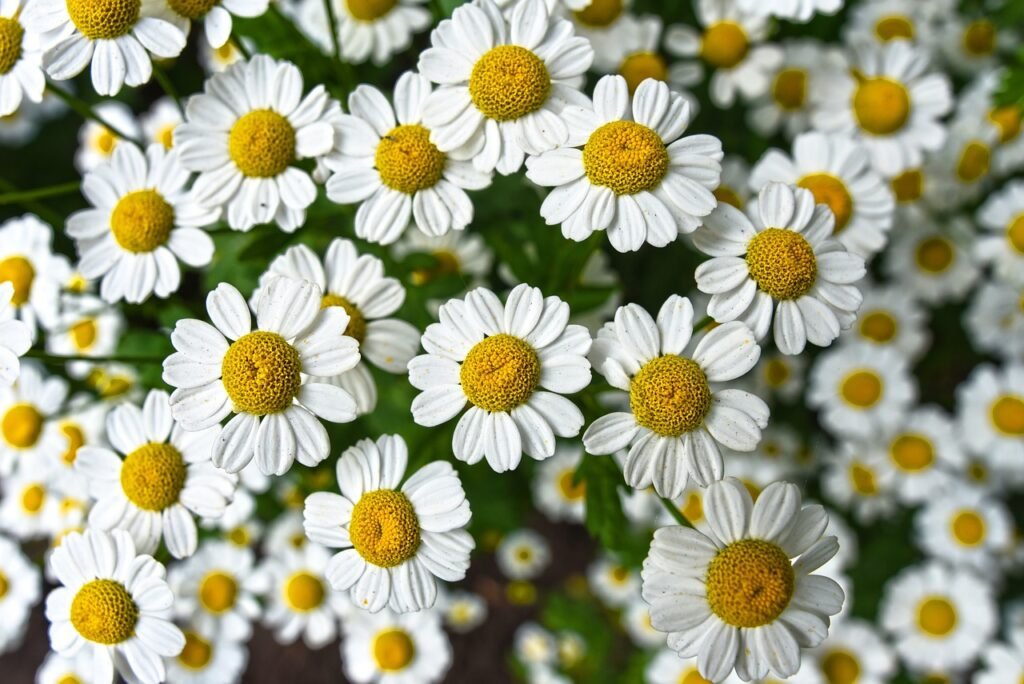
Lemon balm is for the social butterflies among us who become irritable and cranky when they don’t have enough downtime. Lemon balm is for overstimulated extroverts with difficulty focusing, a good choice for kids and adults with ADHD or those that just go and go and go.
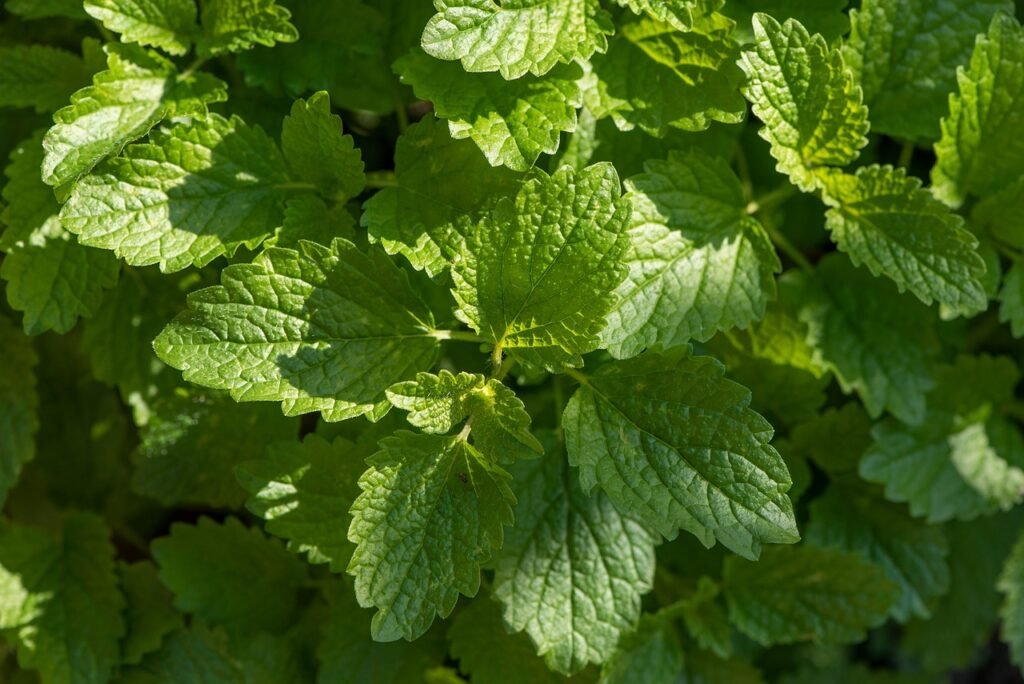
Valerian is found in many sleep formulations because it can help release us into sleep. It is best for those who are tense and tired. It relaxes tension in the muscles, making it a good choice for those with spasms, cramps, and tension headaches.
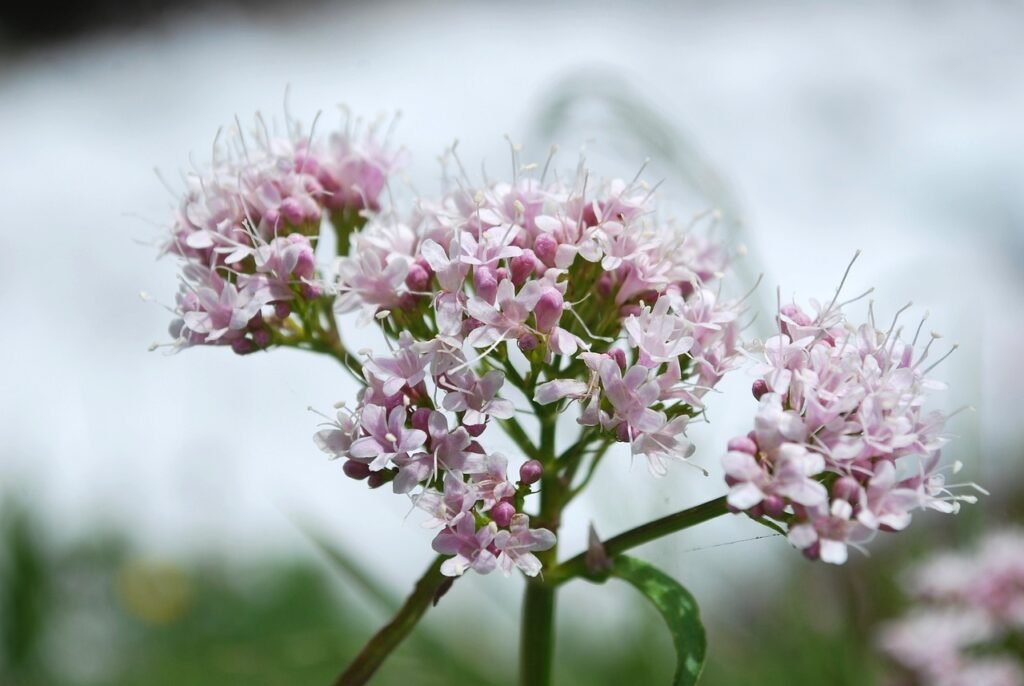
California poppy is my go-to herb for those who are stressed-out, depressed, and cannot sleep because of pain. It has mild pain-relieving properties, eases anxiety, and helps induce restful sleep. Effective and safe, it is not addictive like its cousin, the opium poppy.
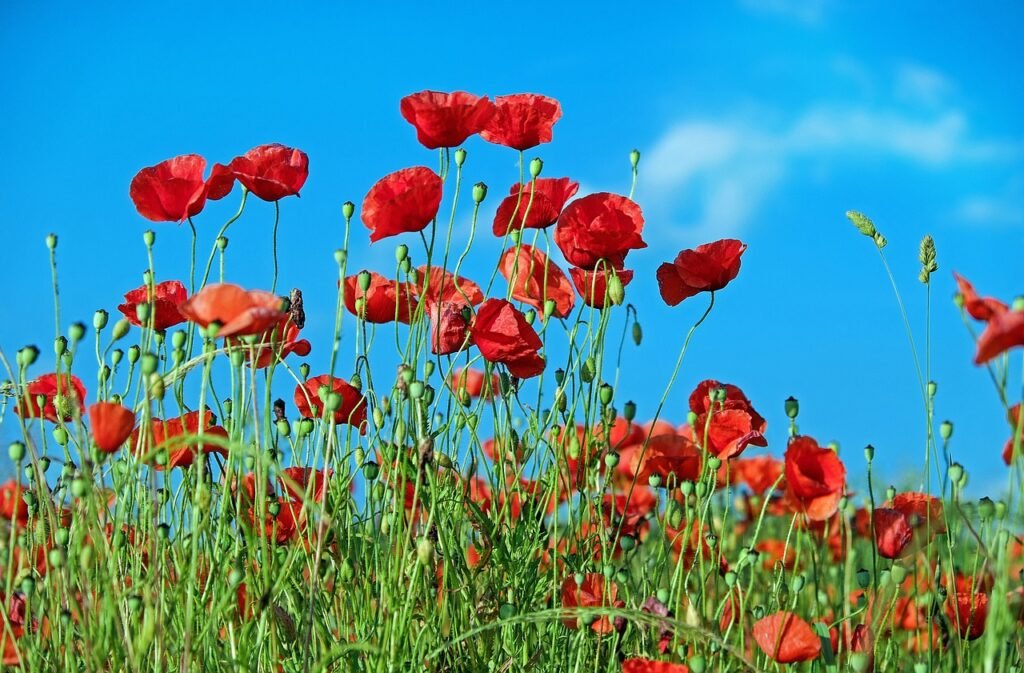
Hops are my choice for those who really need to sleep but find themselves lying awake at night worried about all kinds of things.
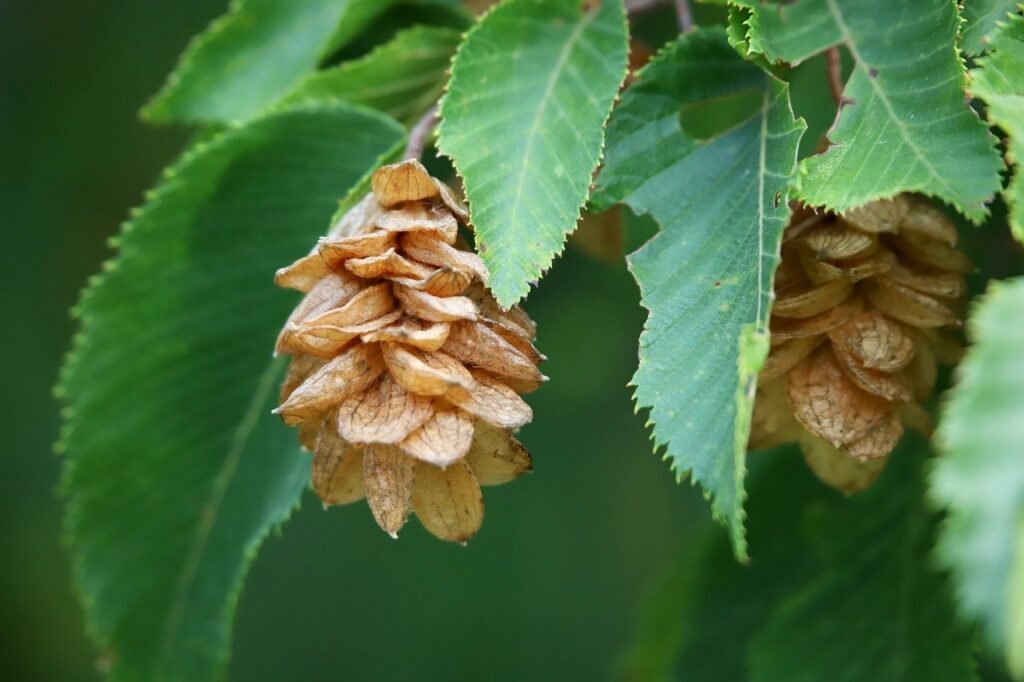
Hops bind melatonin receptors, which may explain in part why this relaxant works. I once drank 2 cups of very strong hops tea before bed and slept for 10 hours straight. It works.
Nervine tonics. These are herbs that nourish and support the nervous system. We have no equivalent in Western medicine. Traditionally, these remedies were used when there was actual physical damage to the nerves and for those who were emotion- ally exhausted and overwhelmed. Here are three of my favorites:
Milky oats is a classic nervine tonic. It is my go-to tonic for those who are mentally and spiritually tired-not depressed, but just spent. I’ve seen this in many caregivers, healers, and pastors. Milky oats are harvested and tinc- tured while in their green, milky stage.
Skullcap is best for those who are easily upset and eas- ily overwhelmed. The old expression, “I am on my last nerve!” accurately describes someone who would benefit from skullcap both acutely and as a tonic. It is one of my top herbs for those who do not handle stress well.
St. John’s wort strengthens and nourishes those who are mildly depressed. A 2009 review of 29 studies concluded that St. John’s wort is as effective as standard prescription antidepressants for treating mild to moderate depression.
I’ve found it to be highly beneficial for those who grew up with little sense of personal boundaries, always becoming enmeshed in the emotional needs of others and then feeling overwhelmed and depressed. It’s best for those not taking prescription drugs as it can interact with many.
So, you can make teas or tinctures from these herbs based upon which one resonates with you. So, the next best herb is St. John’s wort tincture. For young children, stick with chamomile, lemon balm, milky oats, and skullcap.
St. John’s Wort Tincture
- 25 grams St. John’s wort, fresh flowering tops
- 65 milliliters grain alcohol
- 40 milliliters water
To make a 1:5 fresh herb tincture, chop the St. John’s wort into small pieces and put them in a jar.
Add 65 milliliters grain alco- hol and 40 milliliters water to achieve a 1:5 strength fresh herb tincture with a solvency of 50 percent (you have to account for the water in the fresh herb).
Mix well. Cover with a lid and label. Steep for 2 to 4 weeks. Strain through a cheesecloth and store in a dark bottle.
How to Use St. John’s Wort Tincture
So, it is a highly effective mood lifter. The dose of tincture for an adult is 3 milliliters 2 to 3 times a day. The tincture may also be applied topically as a compress for bruises and nerve pain.
Although most people think of St. John’s wort as the “antidepressant” herb, the truth is that it has been used for more than 2,000 years to calm the nerves, lift one’s mood, and help reduce pain.
Modern science has confirmed that it is as effective as prescription antidepressants for mild to moderate depression, and preliminary research also shows it can ease PMS symptoms and improve menopausal symptoms. The one thing you have to watch for when using St. John’s wort is possible herbdrug interactions.
Check with your pharmacist or health care provider before using it internally if you are taking any prescription medications basic stress formula that is great to keep around the house for those times when you need to “take the edge off.” So, these are the best herbs to calm nervous system naturally without sides affects.

Leave a Reply